MG Paul Vallely on Donald Trump’s Iran Policy and the U.S. Military
I wonder what they missed.
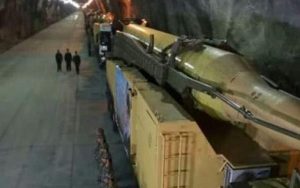
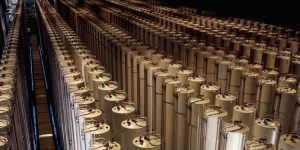
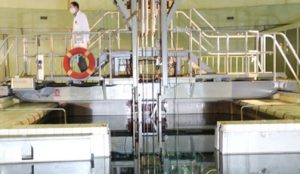
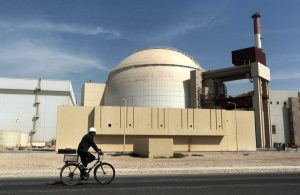
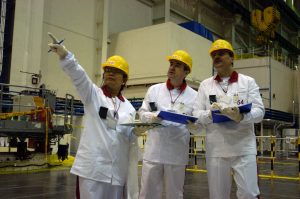
Treaty with Iran Spells Disaster for the Middle East, and for the US.
By MG Paul Vallely, U.S. Army (ret.)
A speech from 7-11-2015
Over the past 12 years, I have had the honor of being a member of the Iran Policy Planning Group and have been engaging with the Iran Opposition who defected from Iran after the Shah fell. My heart and soul yearned with them for the tyrannical government under the ayatollahs to be replaced by a democratic government. But that has been a failure thus far as we all know. All we have seen is an evil and radical Islamic regime gain in strength over the years; supporting international terrorism, torture, and murdering its own people and others throughout the world. Can you only imagine what chaos and turmoil will occur with much stronger, bolder, and expanded Iranian Armed Forces – armed with nukes that can reach any target by air, land, and sea launched systems?
Aiding and abetting an enemy of the United States (and Iran is our avowed enemy), is a treasonous offense under the Constitution.
From 2009 to the present, Obama, with the guidance of Valerie Jarrett, has been involved in clandestine negotiations with Iran, the largest state sponsor of terrorism in the world. Americans will recall that on November 4, 1979 Iran “Declared War on the United States” when it invaded the US Embassy in Tehran and took all the Americans in the Embassy as hostages. Iran feared Ronald Reagan and his peace through strength and released our hostages very soon after Reagan was elected. Since then, for over 35 years, Iran has been killing thousands of Americans and expanding its hegemony throughout the Middle East and the world.
For 6 years, while Iran was employing Iranian manufactured Improvised Explosive Devices (IEDs) to kill and maim (for life), thousands of members of the US Armed Forces, Obama has been involved in secret back channel negotiations in Oman, not negotiating to stop Iran from employing Iranian manufactured IEDs to kill members of the US Armed Forces, or in negotiations to prevent Iran from developing nuclear weapons.
For over 3 years, Obama has continued to lie to the American people, by saying first Hillary Clinton and then John Kerry have been engaged in negotiations to prevent Iran from developing nuclear weapons; nothing could be further from the truth. Obama has only been interested in normalizing diplomatic relations with Iran, regardless of the cost to the lives of US military personnel in combat over a 6 year period, regardless whether it resulted in giving Iran nuclear weapons to put atop its intercontinental ballistic missiles.
The treacherous activity with Iran began with Hillary Clinton, and continues with John Kerry. The Obama’s clandestine activitities have been covered up for 6 years by the left of center, liberal media establishment, and the members of the US Congress who have been kept informed of those step-by-step negotiations.
Obama chose to decouple his negotiations concerning Iran’s development of nuclear weapons from Iran’s aggressive behavior in the Middle East that was killing members of the US Armed Forces in Iraq and Afghanistan. Obama, Valerie Jarrett, Hillary Clinton, and John Kerry backtracked on virtually every demand that would have curbed Iran’s nuclear weapons development program and on international inspection regime that would have detected Iran’s continued violations of every agreement it ever entered into.
The American people should know that Obama plans to give Iran $150 billion of US taxpayers money (that Iran will use to continue destabilize the Middle East), will lift economic sanctions that were imposed on Iran for going forward in the development of nuclear weapons, will enter into a formal agreement that will permit Iran to develop nuclear weapons, will allow Iran to keep 4 innocent Americans in prison (a US Marine, a Christian pastor, a retired FBI Agent, and a journalist), and for that agreement Obama will get ABSOLUTELY NOTHING!!! I take that back, Iran will be allowed to continue to kill and maim members of the US Armed Forces in Afghanistan with their IEDs
Iran’s Supreme Leader, Ayatollah Khamenei, stuck to his red lines, whereas, Obama made concession after concession on virtually every Iranian demand, such as excluding inspections by the UN’s IAEA inspectors to ensure Iran is not developing of nuclear weapons at military facilities. It really didn’t matter to Obama, since preventing the development of nuclear weapons was never the purpose of the negotiations—the goal of negotiations that began in 2009 has always been to focus on normalizing diplomatic relations with Iran, just like with Cuba,
Obama will soon authorize Iran to develop nuclear weapons, not with an international treaty required by the US Constitution that would require a 2/3rd approval of the US Senate, but by another of his unconstitutional Executive Orders. In doing so, Obama will have initiated a nuclear arms race in the Middle East, may be responsible for forcing Israel to take action in self-defense to strike Iran’s nuclear weapons manufacturing facilities, and his ineptness will probably set the stages for escalating events into the beginning of World War III.
In 1815, the European powers met here to establish the post-Napoleonic order and through a balance of power arrangement bring peace to the continent. Obama surely appreciates the historical echo, since 200 years later he, too, means to create a peaceful order in an especially volatile part of the world by balancing the regional powers—Israel, Saudi Arabia, and Iran—to ensure that none of them gets too large a piece of the pie and frightens the others into making war. The Iran nuclear talks are important because Obama, a U.S. diplomat circularly explained here last week, “believes a peaceful Iran could be . . . the key to peace.”
The difference between 1815 and 2015 is that Napoleon had to be defeated at Waterloo before the peace forged by the Congress of Vienna could hold, lasting nearly a century. The Islamic Republic of Iran, on the other hand, is on the march throughout the Middle East, controlling four Arab capitals, and waging war from the eastern Mediterranean to the Persian Gulf. Nonetheless, over the last two and a half years of negotiations with Iran, the Obama administration has offered Tehran virtually every concession it sought, which only spiked its appetite for more. Most recently, the Iranians have demanded that Western powers lift the U.N. arms embargo, a demand that could hardly be less subtle—we want weapons, the Iranians are saying, to make war.
The purpose of the Congress of Vienna was to create order. In contrast, the talks with Iran have jeopardized the order of the Middle East that the United States has maintained for more than half a century. The nuclear talks have legitimized and further emboldened a revolutionary regime. The White House’s string of concessions—from sanctions relief to acknowledgment of Iran’s right to enrich uranium—is tantamount to bankrolling Napoleon and arming him. The peace that Obama believes his diplomats are negotiating in the Austrian capital increases the likelihood of war.
The Iran nuclear talks were never exclusively about the clerical regime’s nuclear program. The administration has repeatedly insisted that a firewall separates the nuclear file from all other issues we might have with Iran—the Syrian civil war, the future of Iraq, Iran’s support for terrorism—but from the very beginning of his presidential term, Obama’s engagement with Iran meant everything was up for grabs. The White House believed the two governments had to learn to trust each other and was therefore quietly willing to do favors for the mullahs.
The White House and Iran had “secret dealings” starting in 2009, when the two sides discussed a number of issues—like the three American hikers detained by the Iranians, eventually exchanged for four Iranians held in American prisons. So what if the administration was letting Iran set the terms of engagement by equating college kids, backpackers, with felons who were clearly working for the regime’s intelligence services? The point was to build confidence with the Iranian regime. Eventually they’d settle the nuclear issue and discuss a number of other matters important to both parties.
There were other secret overtures, like Obama’s letters to supreme leader Ali Khamenei. But much more important were the White House’s public shows of confidence-building. The White House gave the regime room to crack down on the Green Movement that took to the streets in June 2009 to protest likely fraudulent elections. And it also left alone Tehran’s friends, like Bashar al-Assad, who is still the president of Syria even though Obama demanded he step aside four years ago.
Further, and this was perhaps the most important aspect of engagement with Iran, the administration showed that it could control and even beat up on Tehran’s enemies, like Israel. The administration not only made a habit of excoriating Prime Minister Benjamin Netanyahu, it also repeatedly leaked sensitive items, as if it were messaging Tehran directly. Among others, the White House leaked the Stuxnet exploit that had damaged Iran’s nuclear infrastructure, it leaked the fact that Israel was using Azerbaijan’s air space, it leaked Israeli strikes on Iranian arms convoys heading to Hezbollah. It boasted that it had deterred Netanyahu from striking Iranian nuclear facilities. Of course these leaks were damaging to Israel’s security interests, but the real point was to show Iran that Obama was sincere about wanting to bring them into the international community. They could trust him.
Indeed, maybe Iran could even be made to understand that it didn’t need a nuclear weapons program if it saw Washington as an honest broker. This White House, after all, didn’t automatically come down on the side of Iran’s nemeses in Riyadh and Jerusalem.
Obama may once have meant what he said about preventing a bomb, and the administration’s ostensible red lines were in keeping with decades of American policy opposing proliferation: The Iranians were going to have to dismantle their entire program; there would be no enrichment at all; they would have to ship their enriched uranium to Russia; Fordow would have to be shut; the ballistic missile program was a threat that would have to be addressed; Tehran would have to come clean about its past nuclear activities, to satisfy concerns regarding the program’s possible military dimensions.
But there is a very simple reason why the administration started to cave on all these issues with the Joint Plan of Action in November 2013, and why it continues to cave in Vienna today. Even before the Iranians began to talk publicly with the administration about the nuclear program, they saw that the negotiations had already been decided in their favor. When Obama declined to strike Assad in September 2013 and enforce his prohibition against the use of chemical weapons, the nuclear negotiations with Iran were effectively over. If he wouldn’t lob a few missiles into the Syrian desert to protect his own prestige, he certainly wasn’t going to order strikes on Iranian nuclear facilities and risk a larger war. The Iranians had nothing to lose by sitting with the Americans and could in fact earn more each time they threatened to walk away.
For nearly two years then, the Iran nuclear talks have been something like a puppet show. Neither side is really negotiating about Iran’s nuclear program since that’s already been decided. And besides, from Obama’s perspective, the nuclear file wasn’t the major issue—the larger point was the regional order and the new balance of power he was building.
The real subject of the nuclear talks is the role that Iran will play in that order. The White House seems to be hoping that if it keeps feeding Tehran concessions, the Iranians will finally see it is in their interest to help stabilize the Middle East. Obama is counting on Iran to be a cornerstone of a regional peace similar to what the Congress of Vienna built in 1815. The more likely result is that he will be party to unleashing the evil monster.
How realistic is regime change in Iran? How and when Can it happen?
By
MG Paul Vallely, US Army (Ret)
We have a President and Secretary of State, Mike Pompeo who are committed to regime change in Tehran, Iran sooner rather than later!
If any of the preconditions for regime change are in place, is the time right in the near future? To this, the answer is yes, if, a realistic strategy and foreign policy is developed. And it will certainly require a well-organized and funded coalition that can draw from all supporters inside and outside of Iran for a new, free democratic Iran.
Without underestimating the power in the hands of the mullahs, the truth is that Iran today. Iran is passing through “the deepest crisis the nation has experienced in decades” and is further isolating the country from its neighbors and other nations. A new future must come into being for the younger generations as well as the older generations. Policies since the late 70s have produced nothing but grief for much of Iran’s population. A number of protests took place recently in Iran that received almost no attention anywhere other than inside the country itself. These events occurred in peripheral cities that suffer from rising unemployment, lack of infrastructure, increases in the cost of living, extreme climatic conditions, and air pollution. These cities are marginalized in Iran’s public discourse, which is reflected in an allocation of resources that is not commensurate with the needs of the residents – most of whom are classified as “ethnic minorities”. In those residents’ eyes, government policy is negligent and inattentive to their distress. Large-scale violent demonstrations took place recently in the Iranian city of Kazerun, which is under the jurisdiction of the Fars Province. They were the collective response of residents to the publication of a plan for a new administrative division of Fars that intends to remove two densely populated areas from the jurisdiction of the Kazerun municipality and grant them independent status (a sub-province called Koh-Chenar). Underlying the protests is the plight of many residents of the province who have long suffered from difficult working and living conditions. The administrative partition proposal served as a spark that ignited flames of frustration over government neglect.
The fall in the value of the Iranian currency—despite rising oil revenues—and the massive increase in the rate of unemployment over the past decade signal an economic crisis already heralded by double-digit inflation. In some cases, the government has been unable to pay its employees—including over 600,000 teachers—on time. We understand that there is a great transfer of money out of Iran, much of it coming to the US and other countries. Money laundering in South America has been validated. So, the question is, “What is happening in Iran? At the start of the new Iranian year, it was having difficulty financing over half of its projects, forcing hundreds of private contractors into bankruptcy. Meanwhile, fear of an international crisis over the nuclear issue, and the possibility of new sanctions imposed by the U.S. have put a damper on Iran’s economy.
Pompeo left open the possibility of a new deal, but one based on 12 conditions—including a full halt to all uranium enrichment, withdrawal of Iranian forces from Syria, and an end to support for groups like Hezbollah, the Houthis, and Shiite militias in Iraq—that the current regime would never support. The idea may seem to be that the U.S. will simply continue to ramp up the pressure until the regime capitulates. Any plan must not follow and be close to the neoconservative impulses of the George W. Bush administration people. Or for that manner, follow any of the Obama failed policies that had no specific strategy to assist the Iranian people in their quest for freedom and democracy. Pompeo argued that recent economic protests in Iran are evidence of public anger at a regime that “reaps a harvest of suffering and death in the Middle East at the expense of its own people.”
In a brief question-and-answer postlude with Heritage Foundation President Kay Cole James, Pompeo came even closer to calling for an uprising, saying, “At the end of the day, the Iranian people will decide the timeline. At the end of the day, the Iranian people will get to make a choice about their leadership. If they make the decision quickly, that would be wonderful. If they choose not to do so, we will stay hard at this until we achieve the outcomes that I set forward today.”
Given that there’s almost no chance of Iran meeting the Trump administration’s conditions, the hope seems to be that the Iranian people will take matters into their own hands. This is an enormously risky strategy. Many Iranians who are highly critical of their government’s policies are also resistant to foreign interference in their domestic politics. The regime already depicts anti-government demonstrations as American-inspired regime-change efforts. Pompeo just endorsed that depiction.
Why does the Islamic Republic behave as it does? The answer is that, as the spearhead of a revolutionary cause, it can do no other. The Islamic Republic is unlike any of the regimes in its environment, or indeed anywhere in the world. Either it will become like them—i.e., a nation-state—or it will force them to become like itself. As a normal nation-state, Iran would have few major problems with its neighbors or with others. As the embodiment of the Islamic Revolution, it is genetically programmed to clash not only with those of its neighbors who do not wish to emulate its political system but also with other powers as Iran continues as a threat to regional stability and world peace.


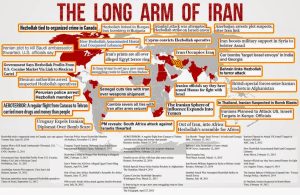
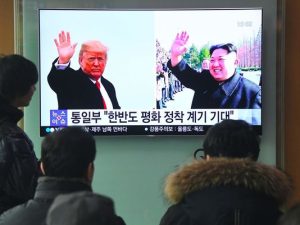
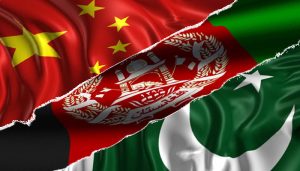
a


